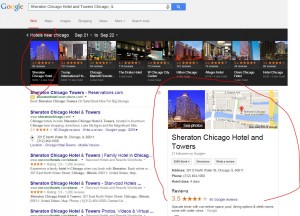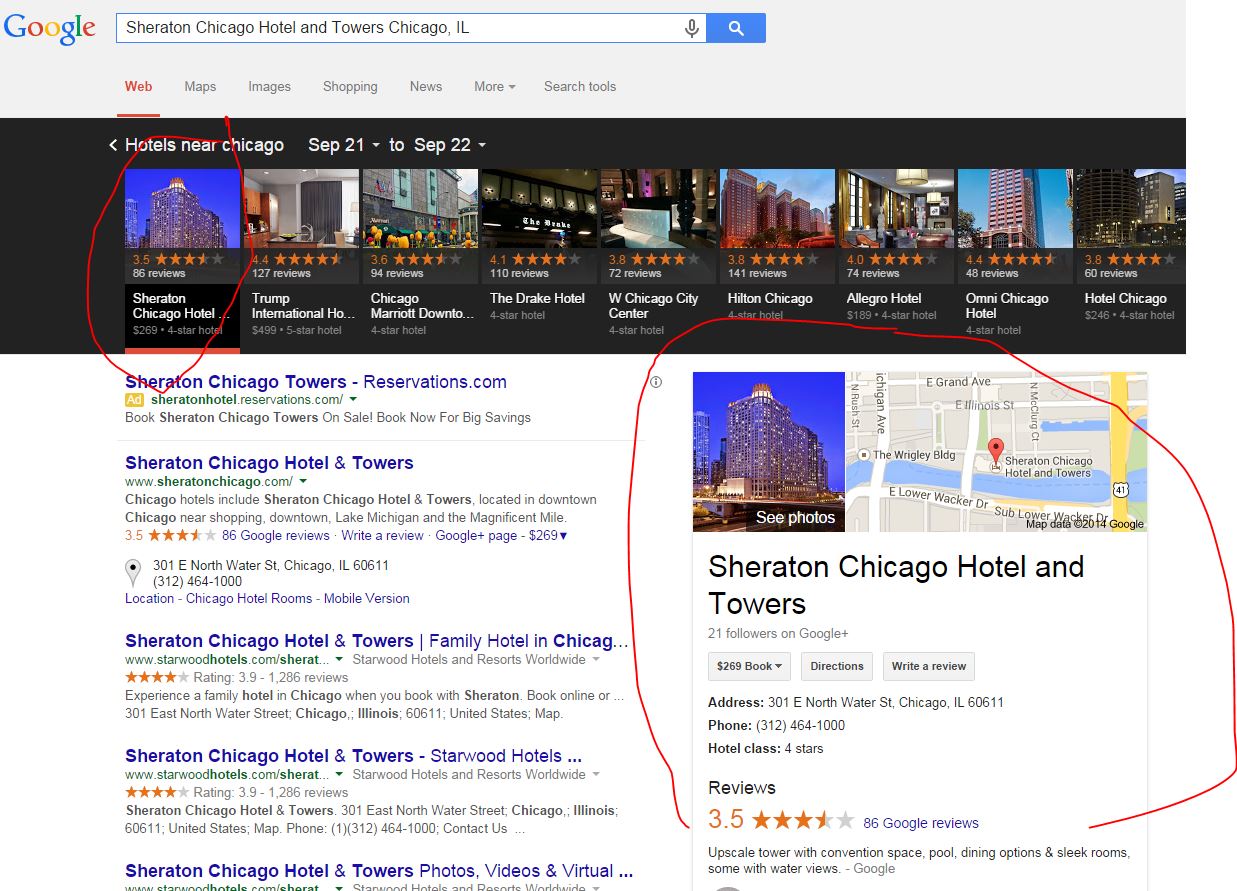10 years ago Google co-founder Larry Page said that the focus of the search engine giant was to “Get users out of Google and to the right place as quick as possible”. That, of course, is what we expect of a search engine. Today however, it appears Google is doing more of the opposite. It seems Google is focusing more on their own content creation and keeping users engaged with their own products and services. Google will tell you it’s “for the benefit of their users”. While there may be some truth to that, the question now being presented is whether Google’s increased promotion of their own content in the search results is impacting SEO. Further, if so what this means for business owners and webmasters.
Google’s universe spans far wider than just its search engine
Despite much of Google’s revenue still coming from search ads, the Google Empire is now made up of significantly more than just its classic search engine. Their key web services now range from social networking (Google+) to their local business directory Google+ business. Their new found interest in creating content has led to significantly more Google users spending their time interacting with Google+ business pages and less time hopping off to other websites in the results. Google’s claim is that the promotion of its own content is benefiting users.
The growing importance of reviews
Recent studies however have shown that in the case of searching for local business reviews popular review website Yelp had more responses and more detailed content. Despite this Google’s own reviews were repeatedly given priority.
I tried this out myself, searching for a “hotel in Chicago”. What the serp showed was a listing of hotels, their rate and the star ranking across the top of the page. Click on an image and the hotels Google listing showed prominently on the right side bar. With the first result in a page typically receiving 33% of clicks, this leaves little left for any other competing businesses. The importance of online reviews is well documented. They are an increasingly important factor in consumers deciding to click a link or not.
 Does it provide value as Google claims?
Does it provide value as Google claims?
It is evident that the addition of Google maps/places in the search results does provide value, saving users time in gauging which business is best for them, quickly and effectively. Whether the addition of Google Hotels at the top of the results is as valuable is another matter. Consumers are easily able to get equally, if not more valuable information, just as quickly by visiting an external hotel comparison website.
Some Google services are not providing “sufficient choice”
Another questionable case is Google’s recent investment into taxi service Uber, which has been closely integrated into the Google maps mobile app, allowing users to call a cab straight from a local map.
Similar taxi services are not given this type of promotion, which leads to the question, are visitors being given sufficient choice. For the millions of businesses who heavily rely on search for much of their web traffic, it is now very possible that they could fall victim to a similar circumstance as Uber’s competitors.
The increased use of Google+ in search results
The likes of a consistent Google+ presence have been attributed to an increase in search results to some websites and content. A study conducted by Moz from 120 top search marketing experts in 2013 consolidated 200 of the most important SEO factors Google considers when ranking websites. Right at the top spot was the number of Google +1’s. What is more valuable perhaps is the introduction of “personalized search” which relies on data from Google+ to give higher placement of content created by those a person follows.
What does this mean? – As a content creator who uses Google+ to market themselves, the content that you create is more likely to be seen by both your followers and the followers of anyone who +1’s the content. This is not only valuable for consumers who enjoy engaging with content from the people they like. It’s a significant opportunity for webmasters, with the ability to build a huge audience using the social network. There is even evidence to suggest that use of Google+ can contribute towards “non-personalized” searches as well.
Giving itself an unfair advantage
The question now being asked is whether this skews the user’s sense of choice, and does this give Google an unfair bias? Google repeatedly says that what they want to see from webmasters is good quality content that provides value. If you’re competing against Google however, there’s not much you can do. Drastically changing your strategy will not bring positive results. What can be said is that there are significantly proven benefits to using Google+ and Google+ Business as part of a wider strategy. Google’s newer services have not replaced more traditional internet marketing, but present new opportunities that webmasters should engage with. Ultimately for now, Google still remains the “doorway” to external sites where consumers can purchase common goods and services.
